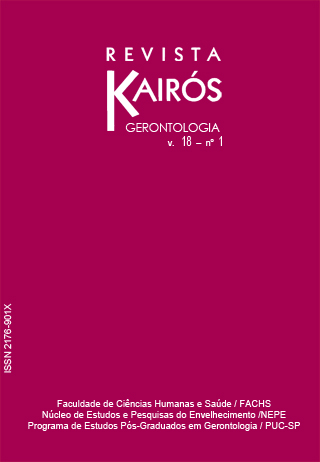Fatores que interferem no sono dos alunos idosos da Universidade da Maturidade (UMA), na cidade de Palmas (TO)
DOI:
https://doi.org/10.23925/2176-901X.2015v18i1p129-150Palavras-chave:
Idoso, Sono, Distúrbios relacionados ao sono.Resumo
O processo de senescência ocasiona mudanças na quantidade e qualidade do sono; assim, a maioria dos idosos tem queixas relacionadas ao sono, decorrentes de mudanças fisiológicas específicas do processo de envelhecimento, que podem causar distúrbios relacionados ao sono. Objetiva-se verificar quais os fatores que interferem no sono dos idosos alunos da Universidade da Maturidade (UMA), na cidade de Palmas (TO). Trata-se de um estudo descritivo de corte transversal, e de natureza quantitativa. Para o levantamento dos dados, utilizaram-se os instrumentos: Questionário de caracterização socioeconômico, seguido da Escala de Sonolência de Epworth (ESE), e do Índice de Qualidade de Sono de Pittsburgh (PSQI). Os resultados da ESE revelaram que 75% do grupo masculino e 51,85% do feminino apresentaram sonolência diurna excessiva normal com escores <10. As respostas abertas do PSQI, em relação à hora de deitar, mostram que 43,75% dos homens deitavam entre 23 e 24 horas; no grupo das mulheres, 29,63% deitavam entre 21 e 22 horas; quanto ao tempo para dormir, 68,75% dos homens e 62,96% das mulheres demoravam ≤ 15 minutos; em relação à hora de acordar, 75% dos homens e 37,04% das mulheres acordam entre 6 e 7 horas; em relação a quantas horas de sono dormiu por noite, 50% dos homens dormiram entre 7 e 8 horas por noite, e 51,85% das mulheres dormiram ≥ 8 horas por noite. Já no PSQI global, 56,25% dos homens possuem uma boa qualidade do sono, enquanto 66,67% das mulheres apresentaram má qualidade do sono, apesar de terem uma maior eficiência relacionada ao sono. Os resultados mostraram que os homens tiveram uma boa qualidade do sono e as mulheres tiveram uma má qualidade do sono.


